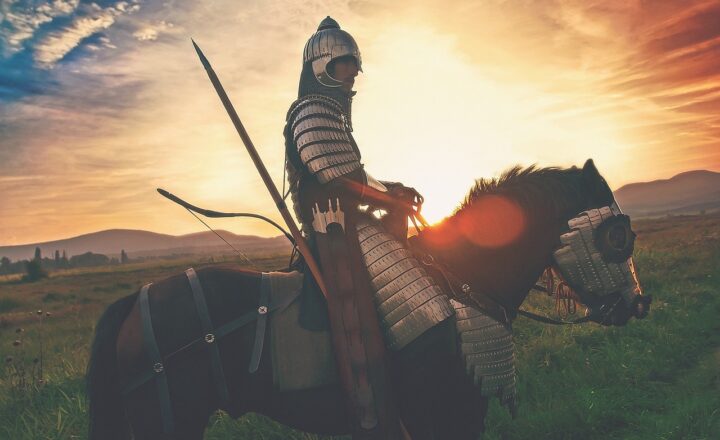Rediscovering the 20th Century: What We’ve Learned from Past Conflicts and Their Resolutions
November 18, 2024

The 20th century was a tumultuous era marked by significant conflicts that shaped the course of history. From the devastating impacts of World Wars I and II to the Cold War tensions spread across nations, the lessons learned from these conflicts are crucial in understanding modern geopolitical landscapes. Moreover, the resolutions stemming from these conflicts have informed strategies for peace and reconciliation in contemporary society. This article takes a deep dive into various key conflicts of the 20th century, analyzing their causes, consequences, and the resolution strategies adopted to restore peace.
—
### 1. World War I: The War That Changed Attitudes Toward Conflict
World War I (1914-1918), triggered by nationalistic fervor, militarism, and complex alliances, not only altered national borders but also reshaped public perceptions of war. The war introduced new weapons and tactics, leading to unprecedented loss of life and destruction.
**Key Lessons Learned:**
– **The Importance of Diplomacy:** World War I showcased the catastrophic consequences of failing diplomacy and misunderstanding among nations. Post-war, this led to the establishment of the League of Nations, emphasizing the need for international cooperation.
– **Total War Concept:** The war marked the shift to total warfare, where entire nations were involved in war efforts, not just professional armies. This necessitated new approaches to war strategy and civilian wartime engagement.
—
### 2. World War II: From Destruction to Reconstruction
World War II (1939-1945), arising from unresolved issues from World War I and the rise of totalitarian regimes, was another significant conflict that swept across continents. The lessons extracted from its devastation were profound.
**Key Lessons Learned:**
– **Unity Against Totalitarianism:** The necessity of collective security was clearer than ever. The Allies united under the banner of liberty to defeat fascism and Nazism, leading to the creation of the United Nations to prevent future conflicts.
– **Human Rights Recognition:** The atrocities committed during the Holocaust and other war crimes prompted a global recognition of human rights, resulting in the Universal Declaration of Human Rights (UDHR) in 1948.
—
### 3. The Cold War: Ideological Battles and the Quest for Peace
Post World War II, the Cold War (1947-1991) introduced a new form of conflict characterized by ideological, political, and economic rivalry primarily between the United States and the Soviet Union.
**Key Lessons Learned:**
– **Detente and Diplomacy:** The cold war highlighted the importance of diplomacy in conflict resolution, leading to treaties such as the Strategic Arms Limitation Talks (SALT) and the Nuclear Non-Proliferation Treaty (NPT).
– **Communications and Mistrust:** The establishment of hotlines and backchannel communications exemplified how dialogue could prevent miscalculations and catastrophic wars.
—
### 4. The Vietnam War: Perspectives on Guerrilla Warfare and Civil Rights
The Vietnam War (1955-1975) was not just a significant military conflict but also a watershed moment for societal movements, particularly in the United States.
**Key Lessons Learned:**
– **Public Opinion in Warfare:** The impact of media coverage highlighted the role of public opinion in shaping government policy and military engagement, leading to more transparent discussions about military actions and their consequences.
– **Counterinsurgency Strategies:** The Vietnam War shed light on the complexities of guerrilla warfare, necessitating new military strategies and approaches to peacebuilding in asymmetric warfare contexts.
—
### 5. The Gulf War and its Aftermath: Reassessing Military Intervention
The Gulf War (1990-1991) serves as a modern example of international coalitions intervening in regional conflicts.
**Key Lessons Learned:**
– **UN Intervention:** The effectiveness of a multilateral force exemplifies how global institutions can resolve conflicts while maintaining international law.
– **Post-Conflict Stability:** The aftermath of the Gulf War demonstrated the importance of planning for post-conflict reconstruction to avoid long-term instability, leading to subsequent strategies in rebuilding nations.
—
### Conclusion: Bridging Historical Lessons to Future Peace Efforts
As we move further into the 21st century, the lessons extracted from these major 20th-century conflicts remind us of the importance of diplomacy, unity against oppression, the necessity of recognizing human rights, and the ever-present role of public opinion in shaping the actions of leaders. By applying these lessons learned, we can strive for more effective conflict resolutions and foster peace in an increasingly divided world.
In understanding our past conflicts, we not only honor the memories of those who lived through them but also equip ourselves with the wisdom needed to avoid repeating such histories. Furthermore, as new conflicts arise in various forms across the globe, embracing the lessons of our predecessors can pave the way for a more peaceful future.








